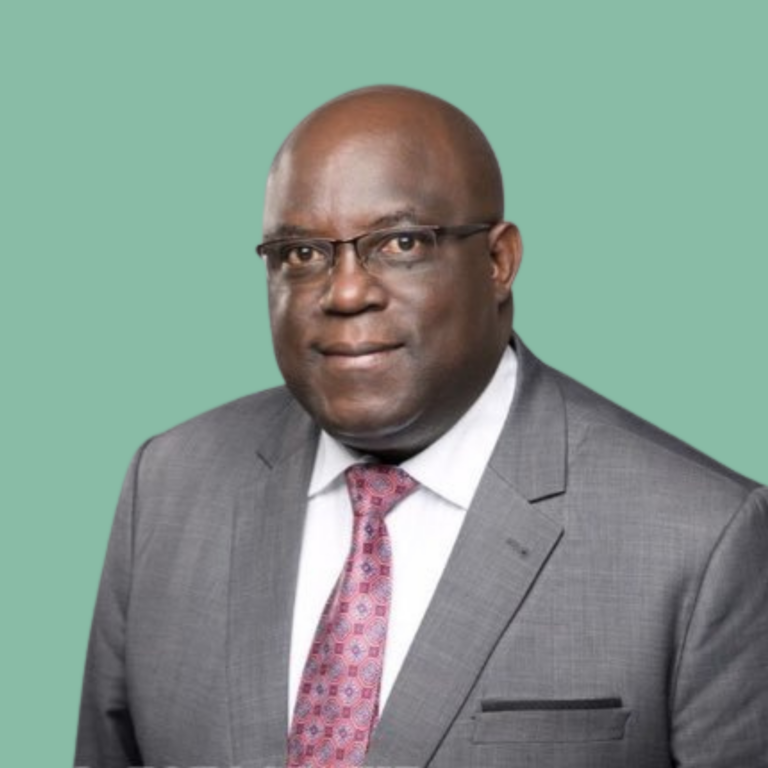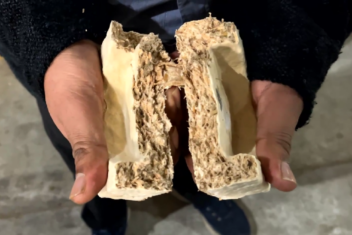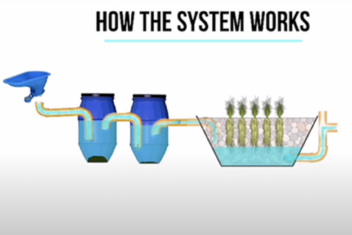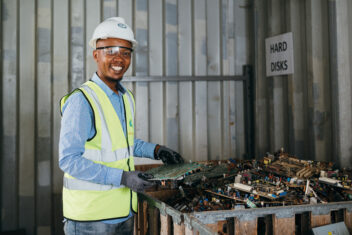Sustainability & partnerships: Ruebin Lifuka (WASTE Zambia) interview

Diving back in history
WASTE and its partners around the world have been changing the development game for nearly 4 decades. We have together developed sustainable and inclusive solutions to many challenges in the waste management and sanitation sectors. Approaching the organisation’s 40th anniversary, we wanted to revisit some key players from our history of collaborations to learn lessons on how we can maintain the spirit of our founders and early work as we move forward.
The following traces WASTE’s history through three continents and many decades, sharing the stories of 7 pivotal individuals who have contributed to this spirit through our work together. These individuals and organisations have continued to share our spirit of inclusivity in everything they do.
A few key takeaways
- Through our holistic approaches, WASTE and its partners around the world have been working on the underlying concepts of ‘circularity’ for decades. It is only recently that high level discussions have rebranded and called more attention to the importance of what is called today “circular economy”. Circularity is integrated in our approach.
- Working with the informal sector is difficult but a critical component to sustainable waste management systems. All our partners echo that this aspect of the work as pivotal to the inclusion and innovative nature of their work.
- Institutionalisation of key concepts and approaches in policy, whether on local or national scales, are crucial for ensuring sustainability of our work.
- Buy-in from the communities, especially local leaders, can either catalyse the success of or be the sole reason for failure of interventions. We must ensure our programmes and solutions are co-created with and by the communities we are trying to serve.
- Real change and local ownership take time to have sustained impact. Our projects, ambitions, and relationships with key stakeholders, shouldn’t forget this key consideration.
Gamechanger 4: Rueben Lifuka
Managing Partner/Environmental Management, Social and Governance Specialist, Riverine Zambia Ltd, WASTE Zambia
Lusaka, Zambia
“We engaged the community groups themselves by going down on the ground and looking at the challenges that they were facing and talking through possible solutions. So we are not walking into a community with a ready-made package. We are essentially saying look at the options and let’s co-create this together.
1. When did you start working in waste management and what is the thematic focus of WASTE Zambia?
When we started with the activities of WASTE in Zambia, it was in collaboration with my company Riverine Development Associates, and we did a couple of projects. The big one was the ISSUE 2 project which was about improved sanitation in Kabwe. We also did work around the economic aspects of the informal sector in waste management. We looked at how they were adding to the waste management system. Subsequently, a decision was made to work with one or two local NGOs and then finally, WASTE Zambia was established. Whenever possible, the team from WASTE Netherlands and we shared notes together and still maintain that informal connection.
2. When and for what projects have you partnered with WASTE?
We have worked with WASTE NL around the bigger issues of integrated solutions to waste management and on the economic aspects of the informal sector in waste management. The earliest project was around the whole thinking about innovative ways of improving community waste management. We started with a conference in Dar-es-Salaam, from where our partnership with WASTE NL began.
We had done some work in the central province and were looking at improving sanitation in a particular community, the largest informal sector community in the town. The idea of ISSUE 2 was to be innovative and find mixed solutions for sanitation and waste management, a provision for a peri-urban area. That helped us innovate by introducing ecological sanitation. We looked at how to introduce ecological sanitation by linking it with waste collection mechanisms of municipal waste. That opened up the authorities’ minds about how they could provide sanitation which is relevant to the area. It was a very transformative and innovative approach at the time. This started in May 2007 and continued until 2009.
We have now upscaled some of the pilot activities we conducted in Kabwe. Around 2012, we worked together to develop the municipal guidelines for the Republic of Botswana. This was a UNDP-funded project. We traveled to Botswana and understood how they put value to waste, the valorisation of waste, and developed systems to strengthen the municipal guidelines.
In 2014, we had a big conference in Egypt looking at circular economy. We were invited by the colleagues at UNDP and the government of Egypt as a part of the collaborative working group. We held an expert workshop on circular economy and resource recovery. We were a big publication, because at that time, WASTE was given the opportunity by UNEP to contribute to a major publication. Lusaka was one city that was selected in the publication to be covered.
3. What were some key takeaways for you from the early collaboration?
If I take the mixed solutions project at Kabwe for example, we looked at it at different levels. Firstly, as experts within WASTE Zambia and other countries, we had many detailed kick-off meetings. So, there were many days of really sitting together, going through the concepts and understanding the different limitations, modifying the model, and talking through how we could bring on board the different stakeholders. We discussed not only technical solutions, but also the engagement approach and other such ideas as part of the bigger system. Coming on the ground we did exactly that. We engaged the local authorities, the elected councilors, the technocrat side, the local government to explain what we were trying to do, and we engaged the community groups themselves by going down on the ground and looking at the challenges that they were facing and talking through possible solutions. So we are not walking into a community with a ready-made package. We are essentially saying look at the options and let’s co-create this together.
4. What were some of the challenges encountered?
Like in any project, some of the obstacles faced were the resistance to change. Not everyone would warm up to a new idea simply because you have come and said it works. They have been used to doing it in a particular way. The concerns about things such as health, fielding questions like Where are we going to be placing our collection container? How frequently is removal going to be done? How hygienic is that? All those questions were asked, to a point that we then had to put in a mechanism to bring the elected councilors from the capital to look at the ecological sanitation (Eco-San) toilets that had been constructed in Lusaka to talk to the people firsthand, learn lessons, and then go back to be ambassadors in their communities. So, the resistance to change is always there and has to be overcome slowly.
In certain aspects, the uptake of innovative ideas can be constrained by the absence of appropriate policy measures [or restrictive ones]. Engagement with different stakeholders, consulting them, getting buy-in to the project and getting their ideas on how the ideas can be refined, was the approach we took, but it takes time.
5. Did the model prove to be scalable and sustainable?
The work we did on the economic aspects informal sector in waste management also influenced the thinking of the Zambian Central Government in policy formulation. What we did has been looked at to understand how best the policy measures and structures can work to take the informal sector on board.
For the mixed solutions, the WASTE Zambia has been working towards replicating some of the mixed solutions to sanitation and solid waste management to other parts of the country, including the capital city, Lusaka. So the impact has gone beyond just the central provinces and is something that is being looked at in other parts of the country.


